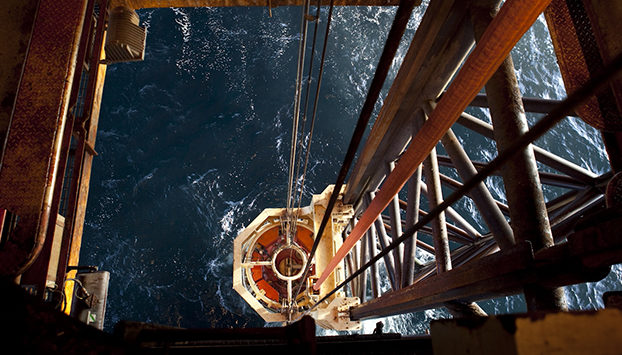
As companies continue to adapt to the challenges affecting the oil & gas sector and search for ways to make improvements in efficiency, there is a risk that investing in innovation can, in some circumstances, become a casualty.
Yet past experience shows that it’s the companies which invest in innovation during difficult times that are more likely to thrive and grow. And of course innovation is crucial to the future of the North Sea, both to improve our efficiency levels and help unlock the considerable level of reserves that remain.
For decades, Scotland has excelled in oil & gas innovation and is recognised the world over for its experience and expertise in this area. That said, oil and gas as a whole has historically spent less on research and development (R&D) than some other sectors – data from the UK government a few years ago indicated that the UK oil & gas industry R&D spend was equivalent to 0.3% of sales compared to the economy as a whole (1%).
As the oil & gas market continues to be tough, innovation remains a key enabler for Scotland’s supply chain to unlock the global opportunities in existing, new, and emerging markets.
That’s why in February this year, First Minister Nicola Sturgeon announced we had allocated £10million towards helping companies reduce the risks associated with carrying out R&D, as well as providing access to specialist experts to help companies kick-start innovation projects.
Since then, we’ve contributed £7million towards 70 innovation projects with a total project value of £16million. This includes Sciencesoft Limited, which in July this year announced it was to embark on a new research and development project to develop an integrated solution for chemical enhanced oil recovery reservoir simulation.
It is hoped the project will increase the company’s revenue by over £21million once complete and secure 28 jobs. We are supporting the company to deliver this £3.6million project with £1.5million of R&D funding. Often the best ideas come from collaborative working and, by building stronger links between industry and academia, higher levels of innovation will be achieved.
The Oil and Gas Innovation Centre, funded by £10million from the Scottish Funding Council, plays a significant part in helping achieve this aim.
And of course the new Oil and Gas Technology Centre, part of the Aberdeen City Region Deal – chaired by Sir Ian Wood and supported by ourselves, the University of Aberdeen, Robert Gordon University, the Oil and Gas Authority, Oil and Gas UK, the Technology Leadership Board and Opportunity North East (ONE) – which aims to make Scotland and the north-east in particular a focal point for oil & gas technology development with a focus on technology priorities, such as reducing the cost of drilling wells and unlocking small pools, previously found reservoirs which need new approaches to help them become commercially viable.
Innovation, however, can come in many forms. It’s not just about developing the right technology, it’s also about having the right processes and procedures in place to maximise value and efficiency.
Delivering greater efficiencies within the industry, therefore, is key and a priority for Scotland’s Energy Jobs Taskforce is driving forward the transformational changes required within the industry to ensure its long-term sustainability.
Take BP for example. Over the last three years the company has worked hard to improve how it manages its inventory to address high costs and production efficiency issues in the UK Continental Shelf.
As a result, the company has reduced the number of storage locations from 120 to 48, impacting significantly on costs, and has disposed of surplus spare parts, more than halving the number of inventory items from 158,000 to 75,000 and generating a significant value from obsolete equipment.
Through the Scottish Manufacturing Advisory Service (SMAS), the manufacturing arm of Scotland’s economic development agencies, we have helped deliver 28 oil and gas projects last year which created £6.5million of value added benefits for the companies by helping reduce waste and improve quality, cost, delivery and capacity performance. So far this year, the team has completed a further nine projects with 28 more in progress.
The slowdown in the sector has also prompted our SMAS team to deliver additional support looking at how the oil & gas sector can learn from best practice in other sectors.
This has involved organising learning journeys as well as a conference in collaboration with Oil & Gas UK. Scotland is well placed to support innovation in the oil and gas sector and if it is to continue to adapt to the new ‘lower for longer’ environment, it needs to build on its track record of ambition and industrial innovation. And Scottish Enterprise stands ready to help as many companies as possible in this area.
For more information on how we can help your business be more innovative, please contact our helpline on 0300 013 3385 or email enquiries@scotent.co.uk
Recommended for you
